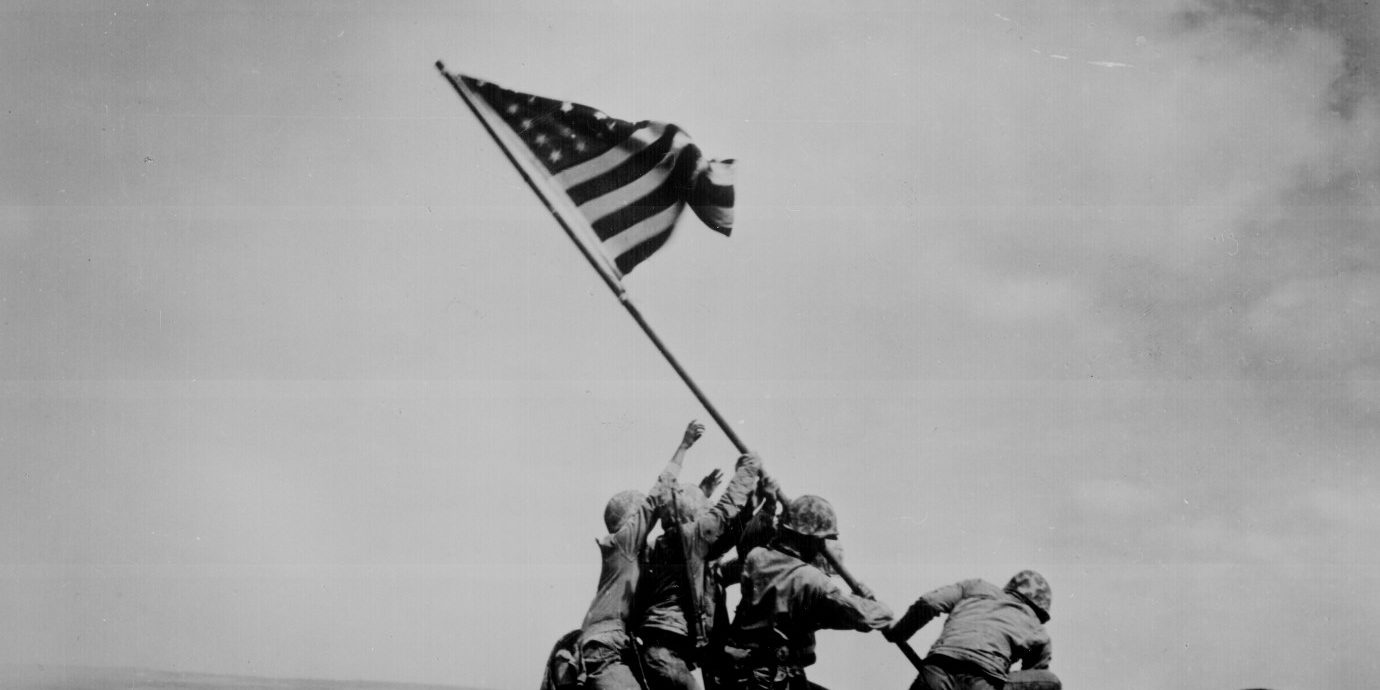The most iconic image of World War II is the raising of the flag on Iwo Jima Island in the Pacific Ocean by six soldiers on the morning of February 23, 1945, though the battle for the island did not end until March 26, however. 80,000 Marines would be deployed – more than any other battle in World War II.
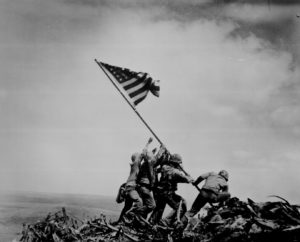 More than 22,000 Japanese were embedded in an underground cement city with 16 miles connecting 1,500 caverns with hidden nests where they would simply pop up and mow down anyone coming toward them. There are important spiritual lessons to be learned about the tenacity, bravery and sheer determination to declare victory by raising Old Glory only five days after landing on a sulfur beach where 566 were killed and 1,755 wounded on the first day!
More than 22,000 Japanese were embedded in an underground cement city with 16 miles connecting 1,500 caverns with hidden nests where they would simply pop up and mow down anyone coming toward them. There are important spiritual lessons to be learned about the tenacity, bravery and sheer determination to declare victory by raising Old Glory only five days after landing on a sulfur beach where 566 were killed and 1,755 wounded on the first day!
Why Iwo Jima? What could possibly be that valuable on a small, lonely island in the middle of the Pacific Ocean? Why would the soldiers deployed know nothing of their destination until only hours before the battle? Iwo Jima was a strategic island, and if captured, would serve as a landing strip and a re-fueling base for bombers to be able to reach Japan. The Americans had already encountered the difficulty of taking other islands where the Japanese were embedded underground and the number of casualties was staggering. It was well known that the Japanese had prepared for such a battle with the United States for over 20 years due to the inevitable conflict of ideology between the two nations.
The Empire of Japan saw its Emperor as divine. In order for its Empire to survive, it must grow and expand. However, the United States were a threat because its ideology was one of defending the freedom of the individual and family as ordained by the God of the Bible. Though unlikely to attack Japan due to its belief in a just, or defensive, war, it was still a great barrier to the expansion of a tyrannical empire. The Japanese were trained to die for their Emperor in order to attain eternal life. World War II brought together three such tyrants who were idolized in similar ways – Hirohito of Japan, Adolf Hitler of Germany, and Mussolini of Italy. To keep the US out of the war, they believed they must cripple her naval ability – hence the attack on Pearl Harbor.
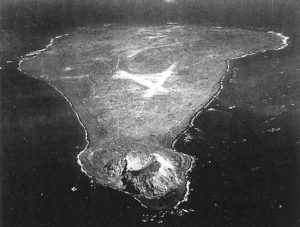 Japan saw its island of Iwo Jima as a place to kill the Americans at a ratio of 10 to 1. They believed they would lose the battle, but desired to cripple the US so they would lose heart. How do you possibly train young men to assault a sulfur island of volcanic ash, knowing that the number of casualties would be so devastating you could not inform them where they were going until only hours before the battle? Their training yields many lessons for today. Could we take such an island today when families give such soft training of their children and an entitlement mentality?
Japan saw its island of Iwo Jima as a place to kill the Americans at a ratio of 10 to 1. They believed they would lose the battle, but desired to cripple the US so they would lose heart. How do you possibly train young men to assault a sulfur island of volcanic ash, knowing that the number of casualties would be so devastating you could not inform them where they were going until only hours before the battle? Their training yields many lessons for today. Could we take such an island today when families give such soft training of their children and an entitlement mentality?
Conversely, virtually everyone raised in America in the 1930’s had religious faith and attended church. They were trained to work for the family, wore hand me downs, and had little desire for fashions. Neighbors knew each other and charity originated in the neighborhood. Families watched out for each other, and if a child got into trouble, there was a local safety net already in place. Everyone was expected to be responsible for their own actions, and all would stand up for the innocent. Simply put, it was your duty to stand for what is right and come to the defense of the family, your neighborhood and your nation. When soldiers wrote home from Iwo Jima, they protected their mothers and sisters from the horrors of war and asked how they were doing at home, recounting memories of their childhood.
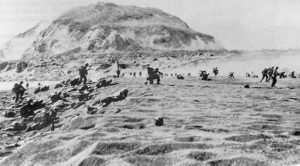 These soldiers were trained in the harshest of conditions. They climbed up hot, sandy beaches under fire, having to navigate over the bodies of their comrades who had been designated to “die.” Carrying 100 pounds of equipment, they were trained to move forward, regardless of the consequences. Flame-throwers would be used to empty a nest, but the basic character trait needed to defeat an entrenched enemy was perseverance inspired by a cause far beyond your own needs. Soldiers did not want to be carried off the island wounded for they would rather die with their team!
These soldiers were trained in the harshest of conditions. They climbed up hot, sandy beaches under fire, having to navigate over the bodies of their comrades who had been designated to “die.” Carrying 100 pounds of equipment, they were trained to move forward, regardless of the consequences. Flame-throwers would be used to empty a nest, but the basic character trait needed to defeat an entrenched enemy was perseverance inspired by a cause far beyond your own needs. Soldiers did not want to be carried off the island wounded for they would rather die with their team!
On the fifth day, while the battle raged on, a unit of 40 Marines were asked to raise an American flag on the top of Mt. Suribachi. During the 40 minutes it took to reach the top, troops on the beach expected them to be blown up at any moment, but for some providential reason, they were not killed. When the first flag was raised, a thunderous cheer was heard among the troops on the beach, though they were under fire. Seeing the pole to be too small, a second flag was raised, and the cameraman clicked several photos. On the sixth frame, a photo that would be seen in newspapers around the world was taken, signifying victory though the battle had just begun! Three of the six who raised the flag that day would die on Iwo Jima, and the other three would travel around the US helping to raise funds for the war – but they did so under command for they did not want to leave their comrades on the island!
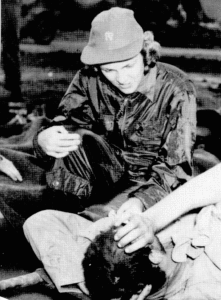 The nurses flown in to care for the wounded had an amazing job – and were dubbed “angels of the air.” Almost 7,000 marines died in this one battle, with more than 27,000 wounded! Chester Nimitz, Commander of the United States Pacific fleet in World War II, declared: “Among the Americans who served on Iwo Island, uncommon valor was a common virtue.” There was much discussion among the leaders of the Air Force and Army on how they might have reduced casualties. One such thought was to have had the air force drop more bombs before the ground troops went in. Continuing for two more weeks might have damaged the underground bunkers and reduced the casualties significantly.
The nurses flown in to care for the wounded had an amazing job – and were dubbed “angels of the air.” Almost 7,000 marines died in this one battle, with more than 27,000 wounded! Chester Nimitz, Commander of the United States Pacific fleet in World War II, declared: “Among the Americans who served on Iwo Island, uncommon valor was a common virtue.” There was much discussion among the leaders of the Air Force and Army on how they might have reduced casualties. One such thought was to have had the air force drop more bombs before the ground troops went in. Continuing for two more weeks might have damaged the underground bunkers and reduced the casualties significantly.
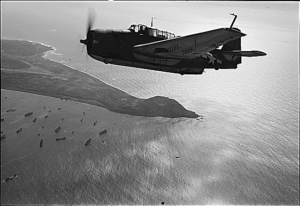 So what lessons can we learn for our lives today? First, do we have the level of vision for God’s Kingdom where we are willing to be a landing strip for others in future generations? Second, are we willing to see our trials as boot camp training to build character, courage and commitment? Third, are we willing to spend more time in prayer, the spiritual Air Force, to soften the ground spiritually so that we can see Christ’s Kingdom advance incrementally?
So what lessons can we learn for our lives today? First, do we have the level of vision for God’s Kingdom where we are willing to be a landing strip for others in future generations? Second, are we willing to see our trials as boot camp training to build character, courage and commitment? Third, are we willing to spend more time in prayer, the spiritual Air Force, to soften the ground spiritually so that we can see Christ’s Kingdom advance incrementally?

